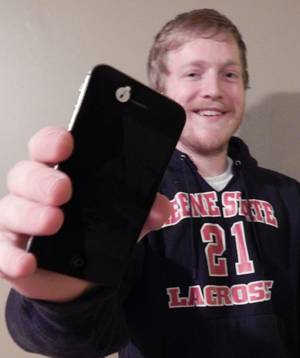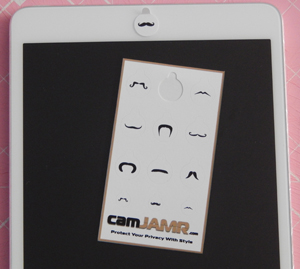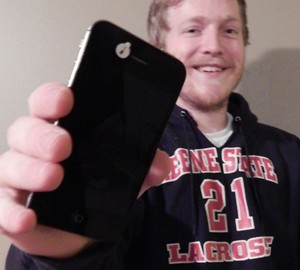
As a computer science major, Josh Luft ’10 is well aware of computer security issues, including a little-known webcam problem he realized when he was Skyping with a friend: “What would it take for someone to intercept this streaming video?” Josh wondered. “Could my webcam be accessed while I’m not using Skype? After some short research, I was shocked at what I found. Not only were there ways to remotely access people’s webcams, you could even disable the indicator light that lets you know your webcam is turned on. I was shocked, and honestly I felt a little creeped out that someone could be watching and/or recording me.” Not convinced? Check out this CNET article.
So he started sticking Post-It notes over his webcam, which worked for a while, but soon fell off after he’d opened and closed his laptop a few times. And the adhesive left a residue on his camera lens.

After some trial-and-error product development, Josh came up with specially designed stickers that are removable, reusable, durable, and don’t leave a residue—printed with color images to make them more fun and trendy—that he calls camJAMR Webcam Covers. This simple, yet effective device has been reviewed in the Washington Post and in The Journal News (White Plains, NY).
A pack of 12 camJAMRs (pronounced “cam jammers”) comes on a business-card-sized sheet, in 13 different styles, and fits over the camera lens on such devices as laptops, iPads, iPhones, iMacs, MacBooks, desktops, smart TVs, Xbox One (or Kinect), and cell phones.
“There are tons of news articles about webcam hacking on both our Facebook page and our website,” Josh said. “We recently posted an article exposing how Facebook had to patch an exploit that allowed hackers to access webcams. Even the FBI addressed how serious this issue is and encourages people to cover their webcams.”
